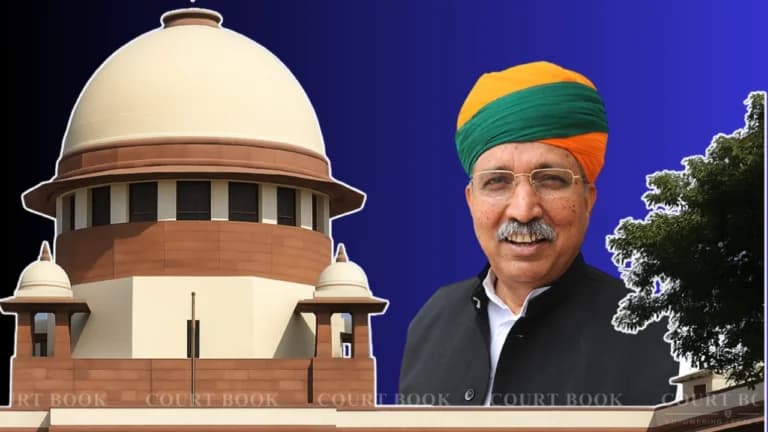Union Law Minister Arjun Ram Meghwal has clearly stated in Parliament that the Union Government has no present plan or intention to remove the words ‘socialist’ and ‘secular’ from the Preamble of the Indian Constitution.
The statement came as a written reply to a query by Samajwadi Party MP Ramji Lal Suman, who raised concerns about attempts by certain social organisations to create public opinion for removing these terms from the Preamble.
“Regarding the atmosphere created by office-bearers of some social organisations, it is possible that certain groups are expressing opinions or advocating for reconsideration of these words. Such activities can create a public discourse or atmosphere around the issue, but this does not necessarily reflect the official stance or actions of the government,”
— Union Law Minister Arjun Ram Meghwal in Parliament.
He added that any discussion on amending the Preamble would require thorough debate and wide consensus, and currently, the Government has not initiated any legal or constitutional process for such a change.
“The government’s official stand is that there is no current plan or intention to reconsider or remove the words ‘socialism’ and ‘secularism’ from the Preamble of the Constitution,”— Arjun Ram Meghwal
These two terms were added to the Preamble by the 42nd Amendment of 1976, during the Emergency period, making them a formal part of the Indian Constitution’s guiding principles. These words are also strongly supported by key constitutional doctrines and landmark Supreme Court judgments.
In November 2024, the Supreme Court, in the case of Dr. Balram Singh v. Union of India, upheld the validity of the 42nd Amendment and rejected a petition that challenged the inclusion of these two words.
“The fact that the writ petitions were filed in 2020, forty-four years after the words 'socialist' and 'secular' became integral to the Preamble, makes the prayers particularly questionable... These terms have achieved widespread acceptance, with their meanings understood by ‘We, the People of India’ without any semblance of doubt,”— Supreme Court in Dr. Balram Singh v. Union of India (2024).
The Court further explained that secularism is closely linked to the right to equality, and socialism promotes economic and social justice without restricting private business.
“In the Indian framework, socialism embodies the principle of economic and social justice, wherein the State ensures that no citizen is disadvantaged due to economic or social circumstances,”— Supreme Court observation
Read also: Supreme Court Petition Seeks POSH Act Implementation for Political Parties
The concepts of socialism and secularism are considered part of the basic structure of the Constitution as per the landmark Kesavananda Bharati v. State of Kerala (1973) ruling. The S.R. Bommai v. Union of India (1994) judgment also strongly reaffirmed secularism as essential to the constitutional setup.
Although there were attempts to reverse the 42nd Amendment through the 44th Amendment, these words were left untouched, and remain foundational to India’s constitutional identity.














